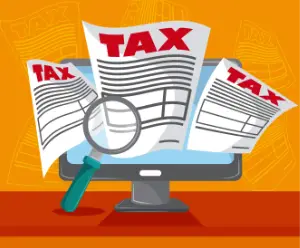
Understanding the IRS Substitute for Return
Click to ask Mike Ask Mike The Internal Revenue Service (IRS) Substitute for Return (SFR) is a term many taxpayers

The deadline for filing your 2023 tax return and paying any tax due is April 15, 2024. This is also the deadline to file an extension request.
If April 15 falls on a weekend or holiday, the deadline is the next business day. For example, if April 15, 2024 falls on a Saturday, the deadline would be Monday, April 16, 2024.
There are a few exceptions to the April 15 deadline. For example, if you live in a state that observes Emancipation Day on April 16, you have until April 17 to file your federal tax return.
If you need more time to file your tax return, you can request an extension by filing Form 4868. An extension will give you until October 15, 2024 to finish filing your tax return. However, it is important to note that an extension does not give you more time to pay any tax that you owe. You must still pay any estimated taxes due by April 15, 2024.
Here are some tips for filing your tax return on time:
Individual tax returns
Estimated tax payments
Self-employed tax returns
Business tax returns
Fiscal year tax returns
Special rules
How to file an extension
To file an extension, you must file Form 4868 by the original due date of your tax return. You can file Form 4868 electronically or by mail.
How to pay estimated taxes
You can pay estimated taxes electronically or by mail. To pay electronically, visit the IRS website or use your tax preparation software. To pay by mail, use Form 1040-ES.
Where to get help
If you have any questions about filing your tax return or paying estimated taxes, you can contact the IRS or a tax professional for help.
You can now ask our AI assistant any questions you have about your tax debt or any tax-related issues. Whether you’re unsure about payment plans, need clarification on penalties, or want information on how to resolve your tax situation. Our AI is ready to assist you with all your tax-related concerns.

By interacting with our AI assistance, you agree to our terms & conditions. Enjoy our AI Tax Assistant responsibly.
Ask me any questions...
Related Posts

Click to ask Mike Ask Mike The Internal Revenue Service (IRS) Substitute for Return (SFR) is a term many taxpayers

Click to ask Mike Ask Mike The Internal Revenue Service (IRS) Substitute for Return (SFR) is a term many taxpayers

Click to ask Mike Ask Mike The Internal Revenue Service typically operates within a 10-year window, commencing from the

Click to ask Mike Ask Mike The Internal Revenue Service (IRS) operates within specific timeframes dictated by statutes of limitations

Click to ask Mike Ask Mike understanding the ins and outs of the 10-year statute of limitations (SOL) is essential.
Recent Posts

Click to ask Mike Ask Mike The Internal Revenue Service (IRS) Substitute for Return (SFR) is a term many taxpayers

Click to ask Mike Ask Mike The Internal Revenue Service (IRS) Substitute for Return (SFR) is a term many taxpayers

Click to ask Mike Ask Mike The Internal Revenue Service typically operates within a 10-year window, commencing from the

Click to ask Mike Ask Mike The Internal Revenue Service (IRS) operates within specific timeframes dictated by statutes of limitations

Click to ask Mike Ask Mike understanding the ins and outs of the 10-year statute of limitations (SOL) is essential.
Disclaimer: This is educational content, not legal, accounting, or tax advice.
This is a tax debt resource website, not to be used in lieu of a tax attorney or for legal advice. All information, Ai chat responses, articles, materials, and content are intended to inform users on a variety of tax topics. In no way is it intended to be construed as accounting, legal, tax, other services or advice. This site is not intended to be used to avoid tax penalties or tax debt that may be imposed by law. Terms and Conditions. Your use of this site constitutes acceptance of the following terms and conditions.
This is a tax debt resource website, not to be used in lieu of a tax attorney or for legal advice. All information, Ai chat responses, articles, materials, and content are intended to inform users on a variety of tax topics. In no way is it intended to be construed as accounting, legal, tax, other services or advice. This site is not intended to be used to avoid tax penalties or tax debt that may be imposed by law. Terms and Conditions. Your use of this site constitutes acceptance of the following terms and conditions.
© 2023 · Tax Debt Monster, Inc. All rights reserved

For all Tax Professionals that would like to partner up with us. By partnering with us, you’ll help us connect and make a positive impact in the tax community. Partner up with us and receive a complimentary Ai Tax Sidekick to help support your clients at no cost! Click here if you’re interested in our Partner-Up program

By interacting with our AI assistance, you agree to our terms & conditions. Enjoy our AI Tax Assistant responsibly.
How may I help you with your tax issue?